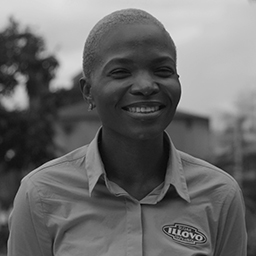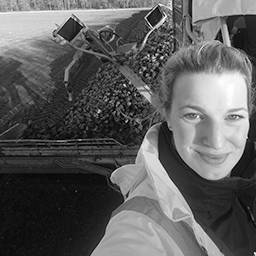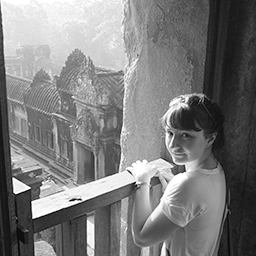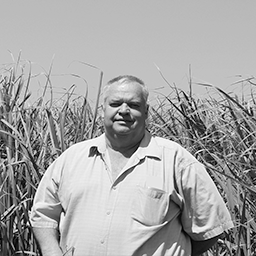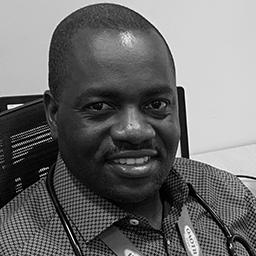Margarida Ndimande
Sugar cane grower and cooperative vice president
Mozambique

Content added - March 2019
Margarida is Vice President of the Hluvukani Varime Cooperative[1] in Maragra, Mozambique. Hluvukani Varime is an umbrella organisation for several cooperatives and farmer associations, its Board has 12 members, 7 of which are women. She is also President of the Cooperative Ed Mondlane, which has 48 members, including 46 women. The Cooperative Ed Mondlane started as a self-helped group for women in 1976, when the land they used was mostly bush and prone to regular flooding.
Fast-forward 40 years, and in 2016 an EU funded project initiated a gender study, aiming to develop gender-responsive initiatives that empower growers to improve their livelihoods, increase their income and reduce poverty. This project brought an opportunity for women to enter into cane production. Margarida comments: “Before the project we could see cane growing around us, but we had no means to enter into production. The EU project allowed for access to training, flood protection infrastructures and access to loans. As women and small holder farmers, we could not access loans from the bank, but with the creation of the Cooperative, we could get access as a group.”
Illovo’s team in Maragra caught up with Margarida to find out how the project has impacted cane growing in the local community, particularly for female growers:
How does the Cooperative support women?
Women are still vulnerable, especially when it comes to access to land rights. We see more women who want to become members of the cooperative, but the main setback is access to DUAT[2] (a formal land tenure right which is recognised by the Mozambique Government). In that sense the Responsible Land-Based Investment Project funded by USAID has been helpful, 66% of land rights certificates were delivered to women.
Without a DUAT, they cannot decide what to do with the land especially when their husband is abroad but keeps the rights to use the land, in other instances if they become widows they can lose all access to land if the family of the husband or even their eldest sons decide to claim their rights. The law in Mozambique protects women, but in rural areas the law enforcement is often poor and that is the role of associations to support women. If a woman’s right is usurped, the woman can go to the Cooperative to seek support and assistance.
What difference does it make to the community to have women cane growers?
Women are wiser in reinvesting their proceeds, we reinvest in education for our children. Now, we can already see our children are able to access higher education, some of them are studying in Maputo or even abroad, it makes us proud.
One of the recommendations from the EU project was to make sure contractors (cane planting, weeding, cane cutting companies, haulage, etc.) would offer employment opportunities to women, did this happen? How did it impact women?
Yes it did. In my neighbourhood, there is this lady named Anna, she was employed through a contractor and does weeding and planting. Thanks to this opportunity she has been able to send her kids to school and she is still working even after the project ended. She is not a grower.
Do you have a message for other women in Africa who may contemplate growing sugar cane?
Yes, I do! I tell them, don’t be scared, be strong; you can work in your field. Producing sugar cane is very important because I thought I was not capable in the past and now I am more able because I have gained a lot of exposure to different things, now I can even speak publicly about different issues.
I didn’t expect to get the kind of income I now have. I can send my children to school and make proper plans for the future. Now, my children are going to school, and I even have a retirement plan. I have electricity, I have installed potable water at my son’s place and I have other projects. My next plan is to buy a car because I have recently obtained my driver’s license!
My message is that women must be ready and pay attention when projects arise. A lot of women miss opportunities because they are not aware of these types of programs.
[1] The Cooperative Hluvukani Varime Manhica, is a growers’ cooperative developed in partnership with Maragra Acuca as part of the greenfield expansion funded by the EU, Illovo, and the growers. Whilst based around sugarcane, the cooperative members also grow food and other commercial crops.
[2] DUAT Direito de Uso e Aproveitamento de Terra are titles of rights to use and benefit from the land.
Case studies
More
